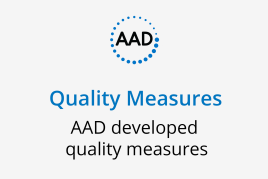Is ivermectin an old drug with new tricks?

By Temitayo Ogunleye, MD, FAAD
Sept. 15, 2021
Vol. 3, No. 37

Imagine my (and perhaps yours as well) surprise to find ivermectin making headlines in our national news for the past few weeks as the newest unproven treatment for COVID-19 infection. According to data retrieved from the National Poison Data System (NPDS), there were 1,143 Ivermectin exposure cases reported to the 55 U.S. Poison Control Centers since January 1, 2021, which represents a 163% increase compared to the same time period last year. (1) Before the pandemic, there were 3,600 outpatient retail pharmacy prescriptions for ivermectin per week, with a spike of 39,000 in the week ending Jan. 8, 2021, and a peak of 88,000 for the week ending Aug. 13, 2021. (2) In addition to retail prescriptions, there are many reports of people using veterinary-grade ivermectin (used mainly for deworming livestock) in various formulations such as topical pastes, pills, or injections. Toxicity from taking large doses of ivermectin daily have resulted in side effects such as headache, nausea, vomiting, diarrhea, hypotension, dizziness, myalgia, ataxia, seizures, coma, and even death. So, why are people risking death or illness to use ivermectin for treatment of COVID-19?


Ivermectin was first introduced as an anti-parasitic in 1981. However, ivermectin also has some antiviral effects, specifically the inhibition of an RNA helicase found in several flaviviruses such as yellow fever, dengue, West Nile virus and tick-borne encephalitis. (3) In June 2020, Caly et al demonstrated antiviral action of ivermectin against SARS-CoV-2 in vitro, with a single dose of the drug being able to control viral replication within 24 to 48 hours. (4) One of the most influential studies that followed was a preprint of an Egyptian study by Elgazzar et al that reported a 90% reduction in deaths in severe COVID-19 cases when comparing ivermectin to hydroxychloroquine. However, there were major flaws in the data with evidence of plagiarism and fabricated data, leading to its retraction. Unfortunately, the paper was viewed over 150,000 times before its withdrawal and cited more than 30 times, with retraction unable to reverse the damaging impact of the falsified data. (5) There are now over 75 studies in various stages of recruitment/completion as listed on www.clinicaltrials.gov, but there is no current high-quality data that supports the use of ivermectin in the treatment of COVID-19.
As it stands, the use of ivermectin for the treatment of COVID-19 outside of sanctioned clinical studies is strongly discouraged. To echo the FDA’s recent tweet, “You are not a horse. You are not a cow. Seriously, y’all. Stop it.” (At least until there’s strong evidence to support it!)
Our editor’s viewpoint
Warren R. Heymann, MD, FAAD
Growing up playing on the asphalt field of PS 188 in Queens, New York, during recess there were innumerable (usually verbal) altercations when outlandish claims were countered by the incredulous party shouting, “Yeah, prove it!”
Skepticism in medicine is healthy, especially when keeping an open mind. Think of journal club when you were a resident. You would carefully scour the methodology to be certain that conclusions were valid. All of us want advances for our patients’ betterment — careful practitioners consistently offer therapy based on the best available evidence, with the understanding that new data may immediately render current practices obsolete.
In the second COVID commentary I wrote for DermWorld Insights and Inquiries, I stated the following: “Word is out that antimalarials may be beneficial in those afflicted with COVID-19 pneumonia. I have not had a chance to review the data. Perhaps there is some validity to the concept. If so, I fear that patients will demand chloroquine unnecessarily as a preventive measure. I understand how desperately people want to grab onto anything hopeful. We cannot succumb to irrationality if there is no data to support it.” We now know that hydroxychloroquine plays no role in the management of COVID-19. For those who are ill with COVID-19, remdesivir and monoclonal antibodies (casirivimab and imdevimab) are available. We need to wait for the completion of the clinical trials on ivermectin before the jury is out.
As a profound understatement, what befuddles and frustrates me to no end is trying to comprehend how so many can latch on to unproven treatments like ivermectin and eschew the data-driven conclusion that COVID vaccines prevent death and spread of infection. Recently I had a patient who swore never to take the vaccine because of having no trust in science. Although this atopic individual was delighted with the excellent control provided by dupilumab, perhaps the thinking was that the biologic was developed by kids playing in the school yard of PS 188 instead of pharmaceutical scientists. I just don’t get it.
https://www.npr.org/sections/coronavirus-live-updates/2021/09/04/1034217306/ivermectin-overdose-exposure-cases-poison-control-centers. Accessed 09/07/2021.
Lind JN, Lovegrove MC, Geller AI, Uyeki TM, Datta SD, Budnitz DS. Increase in Outpatient Ivermectin Dispensing in the US During the COVID-19 Pandemic: A Cross-Sectional Analysis. J Gen Intern Med. 2021 Jun 18:1–3. doi: 10.1007/s11606-021-06948-6.
R. Laing, V. Gillan, E. Devaney. Ivermectin – old drug, new tricks? Trend. Parasitol., 33 (6) (2020), pp. 463-472, 10.1016/j.pt.2017.02.004
L. Caly, J.D. Druce, M.G. Catton, D.A. Jans, K.M. Wagstaff. The FDA-approved drug ivermectin inhibits the replication of SARS-CoV-2 in vitro. Antiviral Res (2020), 10.1016/j.antiviral.2020.104787
https://www.nature.com/articles/d41586-021-02081-w#ref-CR4. Accessed 09/07/2021.
All content found on Dermatology World Insights and Inquiries, including: text, images, video, audio, or other formats, were created for informational purposes only. The content represents the opinions of the authors and should not be interpreted as the official AAD position on any topic addressed. It is not intended to be a substitute for professional medical advice, diagnosis, or treatment.
DW Insights and Inquiries archive
Explore hundreds of Dermatology World Insights and Inquiries articles by clinical area, specific condition, or medical journal source.
All content solely developed by the American Academy of Dermatology
The American Academy of Dermatology gratefully acknowledges the support from Incyte Dermatology.
 Make it easy for patients to find you.
Make it easy for patients to find you.
 Meet the new AAD
Meet the new AAD
 2022 AAD VMX
2022 AAD VMX
 AAD Learning Center
AAD Learning Center
 Need coding help?
Need coding help?
 Reduce burdens
Reduce burdens
 Clinical guidelines
Clinical guidelines
 Why use AAD measures?
Why use AAD measures?
 Latest news
Latest news
 New insights
New insights
 Combat burnout
Combat burnout
 Joining or selling a practice?
Joining or selling a practice?
 Advocacy priorities
Advocacy priorities
 Promote the specialty
Promote the specialty

